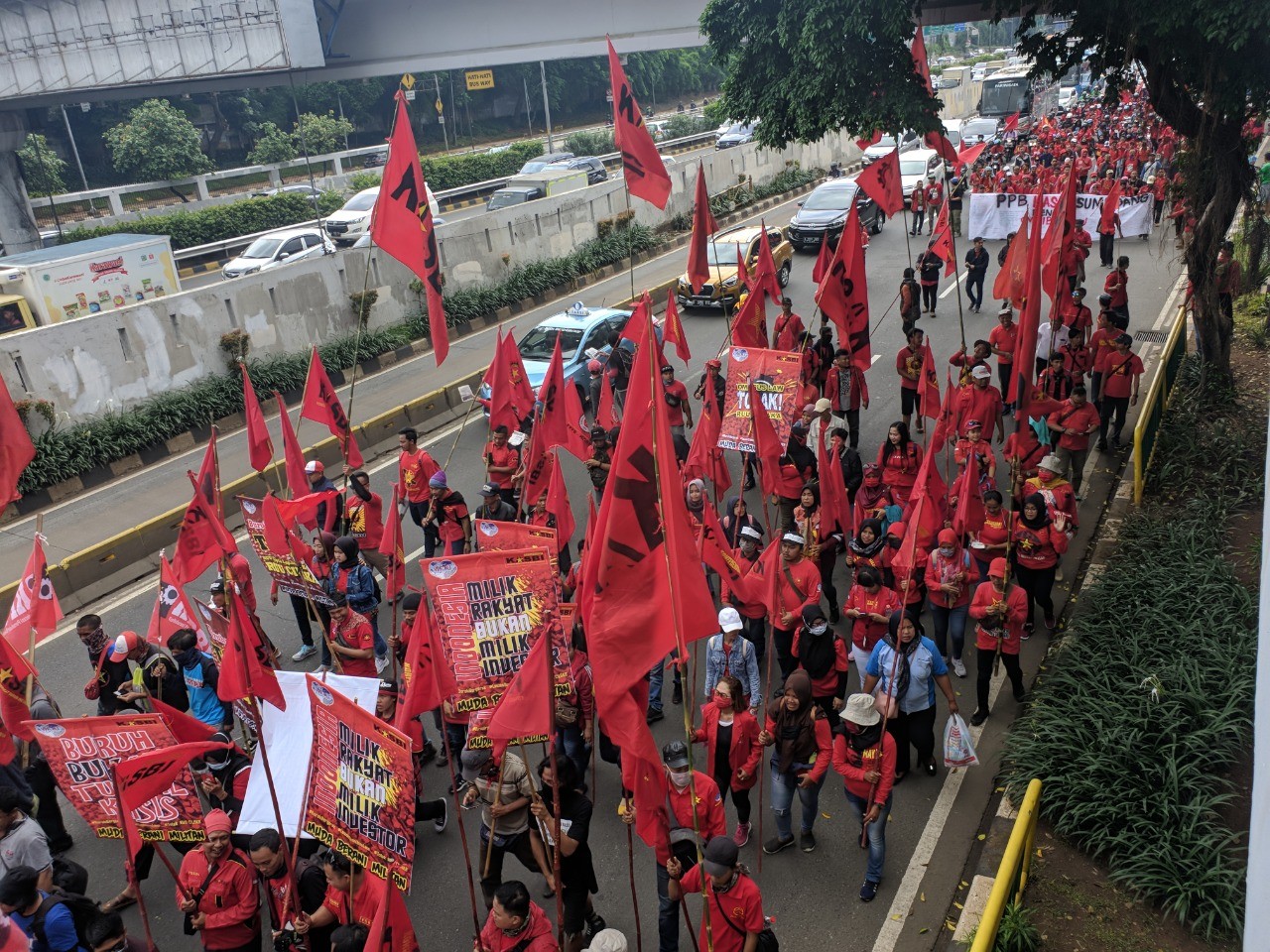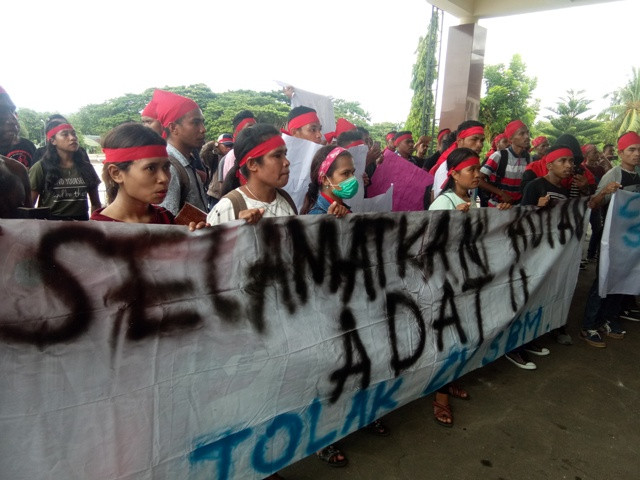Investment vs labor rights
The most controversial and socially sensitive component of this comprehensive reform concerns investor demand — notably among foreign investors — for more flexible labor regulations.
Change Size
 Labor with the People Movement (Gebrak) that consist of labor and student alliances march toward the House of Representatives Building in protest of the omnibus bill on job creation in Jakarta on Monday, Jan. 13, 2020. (JP/Moch. Fiqih Prawira)
Labor with the People Movement (Gebrak) that consist of labor and student alliances march toward the House of Representatives Building in protest of the omnibus bill on job creation in Jakarta on Monday, Jan. 13, 2020. (JP/Moch. Fiqih Prawira)
J
obs are the first and most critical need for the approximately 25 million poor, 7.5 million unemployed and 45 million underemployed people in the country to escape deprivation. Studies show that the majority of people who escape poverty do so through productive employment.
Jobs generate income and consequently increase purchasing power to fuel consumption, propel economic growth and lift people from poverty. From a broader perspective, work is inherently and intrinsically linked to human development because productive jobs are the means to tapping and unleashing the human potential for creativity and innovation and to providing people with a sense of security and dignity.
Upon these values lies the strategic importance of the omnibus bill on job creation that the government will soon submit to the House of Representatives. The rationale is that private investment creates jobs, not the government. Thriving investment also generates more tax revenue for the government to finance public services and investment. This cycle propels the wheels of economic growth.
But private investors are willing to stake their capital only if the investment climate allows for a reasonable calculation of risk and Indonesia’s economic competitiveness improves significantly. Due to structural problems, high regulatory barriers and excessive bureaucratic red tape, however, our economy is more inefficient than our neighbors’.
The overarching omnibus bill has therefore been correctly designed to amend or to remove contradictory and overlapping laws and regulations and to streamline bureaucracy.
The most controversial and socially sensitive component of this comprehensive reform concerns investor demand — notably among foreign investors — for more flexible labor regulations. They view the current labor rules as too rigid for this era of rapid technological change and the reason Indonesia has the highest employment costs in ASEAN.
However, the lack of transparency and public debate on the labor reforms has caused concern among trade unions that the new labor rules will be heavily liberalized in favor of investors’ or employers’ interests, to the point of permitting labor exploitation.
We are opposed to exploitative work, particularly the exploitation of women and children, which robs people of their fair share of income, their rights and their dignity.
Likewise, hazardous work — work without occupational safety, labor rights or social protection — is not conducive to human development. There is thus a legitimate need for regulations on labor protection, in particular compulsory minimum wage, especially because workers have weak bargaining power.
We fully support workers’ demand that the minimum wage should at least meet the basic cost of living to sustain a decent living standard. But we should also acknowledge the principle that economic growth and job creation share common goals that can be achieved only with industrial peace and fairly distributed gains from growth.
The economy will not grow if employers and labor unions are constantly at loggerheads. And too rigid labor rules will scare away investors interested in labor-intensive industry.








